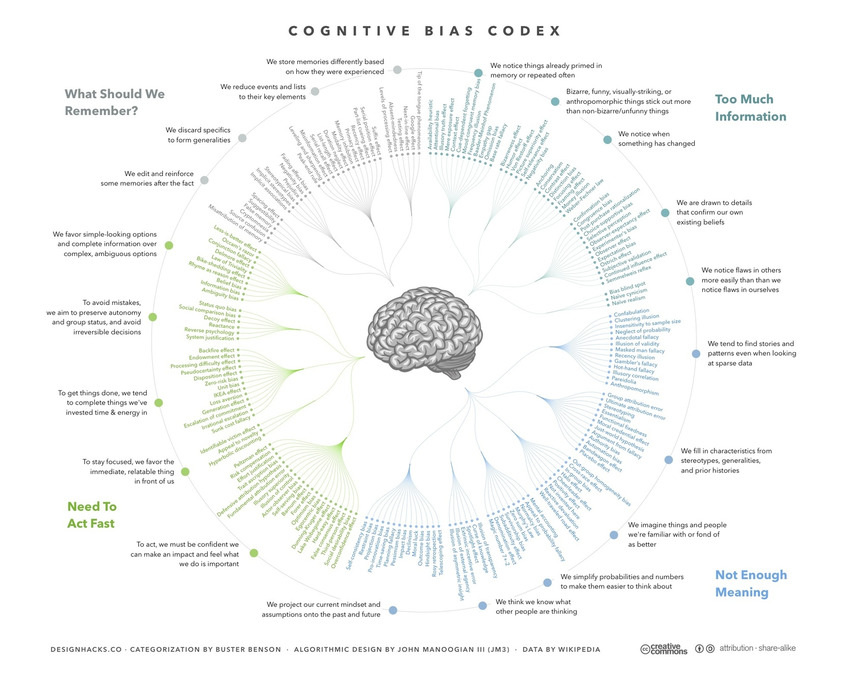Great, how am I supposed to remember all of this?
You don’t have to. But you can start by remembering these four giant problems our brains have evolved to deal with over the last few million years (and maybe bookmark this page if you want to occasionally reference it for the exact bias you’re looking for):
- Information overload sucks, so we aggressively filter. Noise becomes signal.
- Lack of meaning is confusing, so we fill in the gaps. Signal becomes a story.
- Need to act fast lest we lose our chance, so we jump to conclusions. Stories become decisions.
- This isn’t getting easier, so we try to remember the important bits. Decisions inform our mental models of the world.
Research and publish the best content.
Get Started for FREE
Sign up with Facebook Sign up with X
I don't have a Facebook or a X account
Already have an account: Login

 Your new post is loading... Your new post is loading...
|
|













A must...: Click through to understand the graphic.
RYZZ is coming. It’s a new approach to MarTech for B2B Marketers.
#MarTech #DigitalMarketing